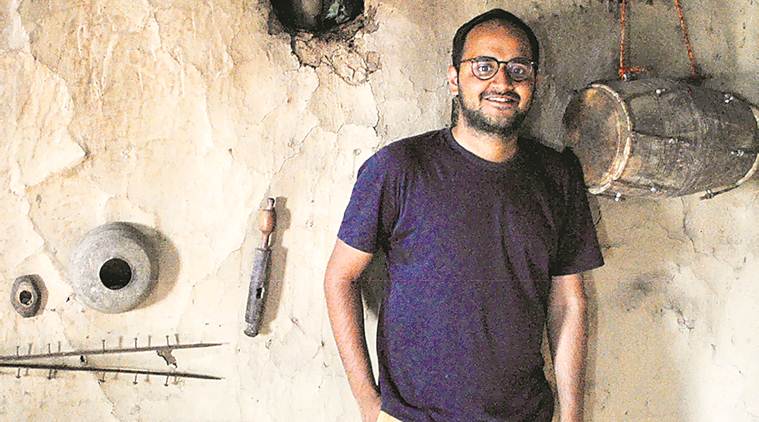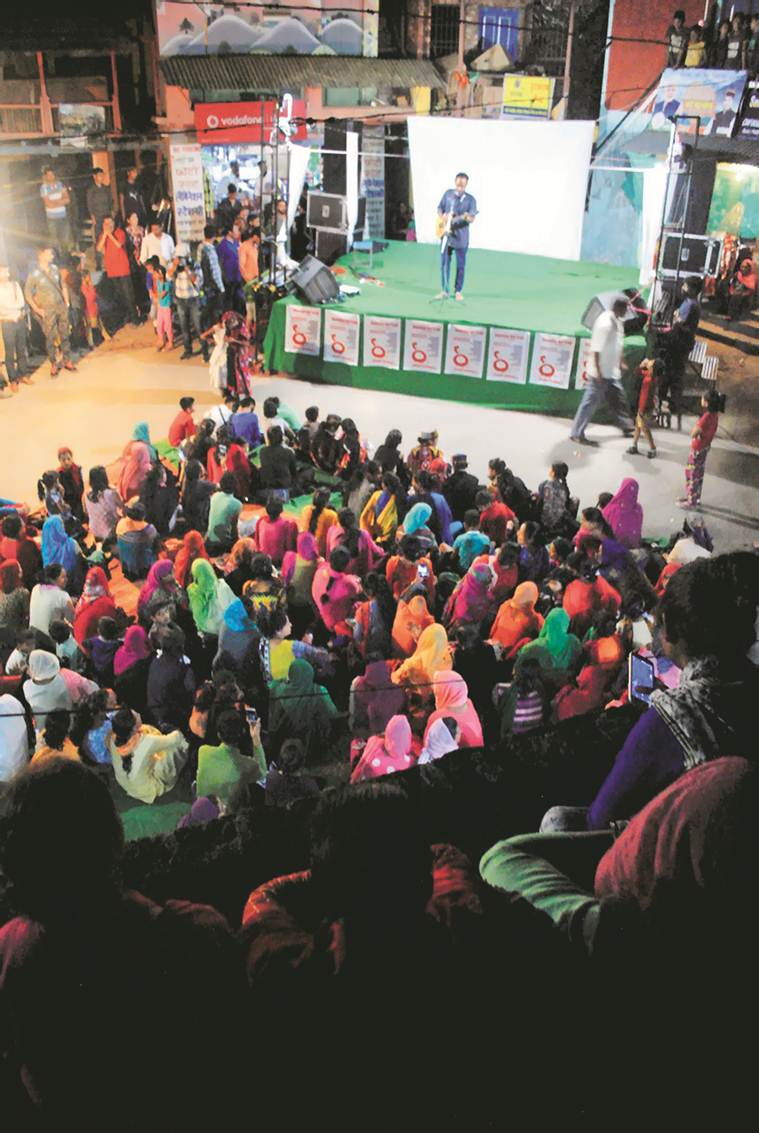Spread across the upper part of Gunehar, along 1.6 km-mountain trail, in old and semi-deserted buildings, Sahai and 11 artists from across India have been working on a music project.
The stories and the soundscapes of Gunehar, a village in Himachal Pradesh, find a new form and frame in Kangra Blues, an album by Yash Sahai, singer-songwriter and music producer. The 27-year-old is part of the third edition of the Triennale, Shop Art Art Shop (SAAS), which has an open art residency and a week-long festival called Gunehar Art Trail.
Spread across the upper part of Gunehar, along 1.6 km-mountain trail, in old and semi-deserted buildings, Sahai and 11 artists from across India have been working on a music project. The theme of the Triennale ‘Borderlines’ is explored through the complexities of living in a world in which boundaries are being reimposed, rather than being dismantled. Sahai’s album is an attempt to engage with this theme.
Having played his guitar since he was 12, Mumbai-based Sahai grew up with blues, listening to JJ Cale and Albert King. While he considers it to be his primary genre, over the years, he has delved into R&B, soul, and jazz. Apart from producing original tracks, Sahai has worked on the background scores for feature films, short films, and documentaries. At the residency, Sahai captures the flavour of the local music and couples it with a western harmony, thus introducing locals to a new style of music. Sahai held interactive sessions and rhythm exercises with children and adults, creating beats and vocals in a live session. He recorded the work and called the experience a “jam room for all.”
Pahadi folk songs, soundscapes, bedtime lullabies, and vocal artists, says Sahai, provided the right sonic landscape, to record and archive stories about the community, in the voice of its people. “I occupied a mud house in the village and turned it into a recording studio. The attempt was to dissolve the boundaries between western and local music while bringing the local community closer together through the experience of live music. The village, he says, is crawling with the sounds of nature and the local folk music and instruments do a brilliant job of integrating themselves into this soundscape. “The city and the music I know are alien to this land, and the rhythm of the village lets me realise this in full measure,” he says.
Kangra Blues incorporates folk songs and instruments against the backdrop of contemporary western music and re-interprets these songs to tastefully treat the differences. The real essence of the task was to bring the instrument and genre of choice to the village of Gunehar and have it dissolve with the local music and make the guitar a part of the soundscape. Music is an essential part of all occasions in the hills and that acted as a bridge for Sahai to connect to the sounds and the stories.
Somewhere new, a track in the album, talks of a young girl who is leaving for a job in the city. It’s set against the backdrop of the shehnai. Drinking is about the only peepni player in the village, his days of glory past and his recent alcoholism, presented through his own tunes. In spirit draws on the story of a soldier from the village who lost his life in battle, narrated by a local woman. Ode to Shiva is a reinterpretation of a traditional gaddi religious song as a western ballad in remembrance of the deity.
The process of composing these songs, says Sahai, was thrilling, challenging, exhausting and rewarding. “I believe such projects are essential to preserving and evolving art. To bring different styles of music onto a common plane was complete joy, and I hope to continue working with folk music and bringing it to a wider audience while staying true to its essence,” says Sahai, who did a live show of the music for the villagers.
Source: Read Full Article



